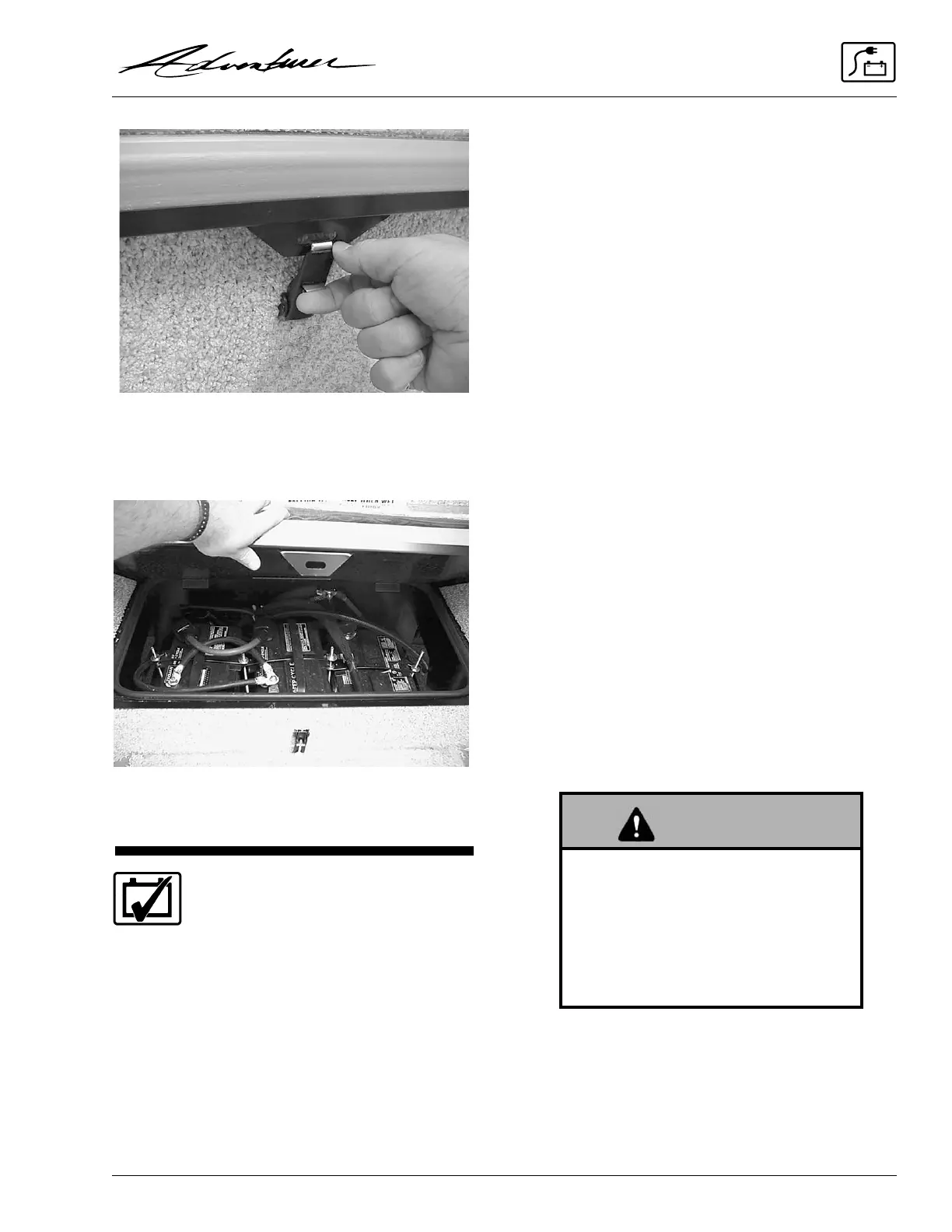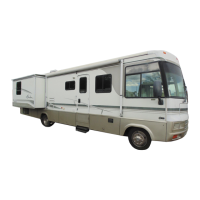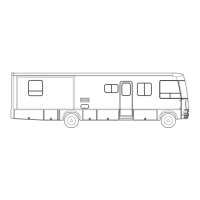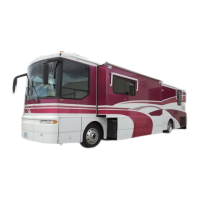6-9
SECTION 6
ELECTRICAL SYSTEMS
BATTERY MAINTENANCE
Lead -acid type batteries are electro-chemical
devices for storing and releasing electrical
charge. As such, they are simply an electrical res-
ervoir, not an electrical source. As soon as energy
is removed from the battery, it should be replaced
by the engine alternator or the RV converter sys-
tem.
If a battery sits unused for 30 days or more, es-
pecially during warm weather, it can develop a
deposit of sulfate crystals on the metal plates in-
side the battery. This conditions is called sulfac-
tion or sulfating, and prevents the battery from
either releasing or accepting a charge. If this con-
dition occurs, the battery must be replaced.
If a battery does not contain at least 80%
charge during freezing temperatures, the
electrolyte can freeze and crack the battery
case.
The two best defenses against sulfating and
insufficient charge are to:
1. turn off the Auxiliary Battery switch to avoid
parasitic discharge (the trickle discharge
caused by directly connected components
like LP gas detectors or digital clock dis-
plays, etc.), and
2. check the battery and recharge as necessary
at least once a month during long storage
periods. Turn the Aux. Batt. Switch off to
avoid electrical arcing when attaching or
detaching charger clamps.
NOTE: We do not recommend leaving the shore-
line plugged in continuously during
storage periods because the batteries
can lose electrolytic fluids and become
damaged from continuous charging
without periodic use.
We recommend following regular bat-
tery inspection and maintenance,
especially in cold weather.
Further precautions are:
· Remove the battery from the coach.
· Store it in a cool place on a wooden or rubber
pad to inhibit conductive transfer.
· Check the state of charge periodically to
avoid discharge or sulfating.
Squeeze lock tab upward and pull
latch handle outward.
Lift step to access batteries
California Proposition 65 Warn-
ing: Battery posts, terminals and
related accessories contain lead and
lead compounds, chemicals known to
the state of California to cause cancer
and reproductive harm. Wash hands
after handling.
WARNING

